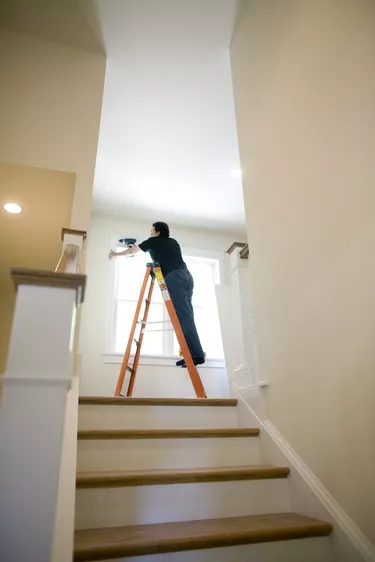
Diligent homebuyers thoroughly inspect a property before purchasing. When a home's condition falls short of anticipated results, you may want to renegotiate sale terms to ensure you get a good deal. An inspection contingency clause in your offer can help you renegotiate and give you a way out, if you can't come to an agreement. Paperwork, terminology and protocol for renegotiating should adhere to your local real estate market's laws, practices and customs, which a real estate broker or attorney can help you to determine.
Popular Provisions in Renegotiations
Video of the Day
Home price, repairs and seller credits are the most common fixes buyers and sellers come up with when they renegotiate a sale. The seller may lower the home price, repair certain defects before closing, provide you with a repair credit to use after closing or offer a combination of these provisions. Regardless of the means used to make the new agreement, all new terms must be in writing and signed off by both the buyer and the seller.
Video of the Day
Find Out the Cost of Repairs
Professional home inspections note both minor and serious flaws. Pinpoint and price out the repairs that matter most to you, since you must live with the expense and consequence of any defects. Obtain estimates, preferably more than one, from specialists -- a home inspector can't quote repairs. For example, hire plumbers to evaluate pipes, get a termite inspector to examine wooden components, have an electrician check out wiring, and get a roofer to inspect ceilings and climb atop the home. Obtain itemized work bids, or estimates, from each specialist to show to the seller.
Write Up New Terms
Draft a request and send it to the seller, along with a copy of your home inspection report. The letter or contractual form should clearly state whether you want the seller to make repairs, lower the home's price, provide a repair credit or perform some combination of these options. Specify dollar amounts. For example, when renegotiating price, state the new dollar amount for the home or a dollar-amount reduction to the price. Also, state a dollar figure for repair credits. If asking for repairs, you can state a minimum or maximum amount, or a specific dollar amount you expect the seller to pay for the work. You can also request that the seller use a specific company for repairs, citing bids you obtained.
Seller Doesn't Have to Renegotiate
Unless otherwise specified by your purchase agreement, a seller doesn't have to negotiate with you after a home inspection. The seller may choose to lower the price, make repairs, or credit you as little or as much as he deems necessary to make the deal happen. A motivated seller with few prospects of selling the home under better terms is more likely to renegotiate with you. However, when other buyers who have fewer requests are waiting on the sidelines, you might have a harder time getting a seller to renegotiate.